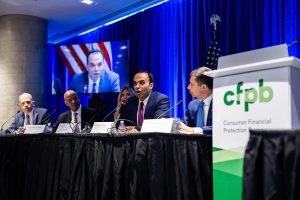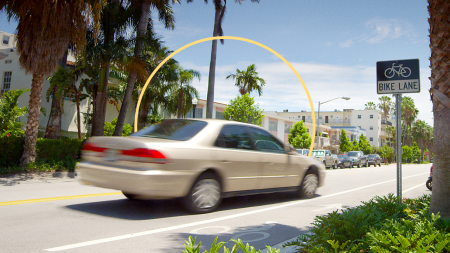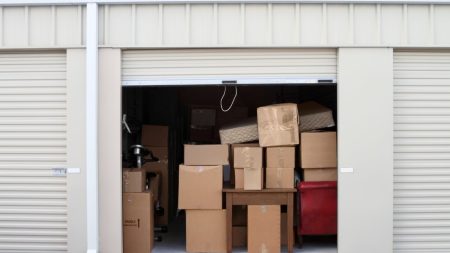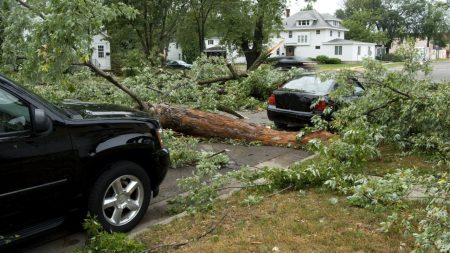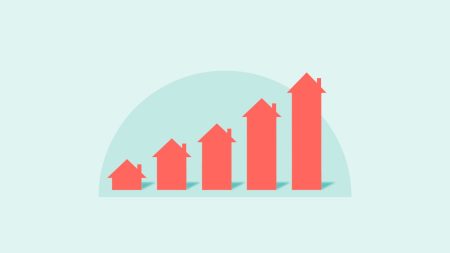Luis Alvarez/Getty Images
Key takeaways
- Owning your home free and clear carries both financial and emotional rewards, but it may not always make sense to prepay your mortgage to get there.
- Paying off your mortgage does not release you from home-related obligations, such as property taxes and homeowners insurance.
- Make sure to specify with your lender that the extra money you pay goes to your mortgage’s principal amount — not the interest.
Paying off your mortgage is a major milestone: You own your home free and clear.
So now what?
It’s a moment to celebrate, but it’s also one that comes with certain specific steps, like ensuring you’ve proof that you’re the full legal owner of the property. And also that the homeowners insurance and property taxes continue to get paid.
Let’s look at what happens when you pay off your mortgage, and what you should do afterwards.
What happens when you pay off your mortgage?
When you make the last payment on your mortgage, there are several things you’ll need to prepare for. Expect to:
- Receive various documents from your lender. Your lender and/or your loan servicer will likely send you paperwork, confirming that you’ve fulfilled your final payment toward the loan and formally releasing your mortgage obligation (see “Documents to expect”, below).
- Update your homeowners insurance policy. Your mortgage company should be removed from your policy — specifically by eliminating the mortgagee clause, which entitles them to reimbursement if the home is damaged or destroyed.
- Make arrangements for paying your local property taxes, since your lender will no longer be paying these out of your escrow account. Make sure you or your accountant receive notifications from your state or municipality about amounts and due dates.
- Make a note to alert your accountant come tax season: You’ll no longer have mortgage interest to deduct on your tax return.
- Watch your credit. Keep tabs on your credit score; after your mortgage loan is removed from your credit history, your score may drop slightly. You might also want to update your financial information on each credit card account, indicating you no longer have this monthly obligation (it could help increase your credit line).
Let’s explore each of these items in more detail.
Documents to expect after paying off your mortgage
When you pay off your mortgage, your lender will provide you with paperwork to show you have paid off your home loan in full. You must collect all the necessary paperwork, and in some cases, escrow funds, before you can consider yourself finished with your mortgage.
- A canceled promissory note: This is one of the many documents you would have signed at closing, promising to pay back the amount of your mortgage. The canceled note, issued by your mortgage lender, indicates your fulfillment of that promise.
- A loan payoff letter: This document will show (down to the penny) what you need to pay off the remainder of your mortgage, plus any owed interest or fees. If you have paid everything off, it will verify that as well.
- A deed of reconveyance: This is a lien release confirming that your mortgage company no longer has a legal interest in your property.
- Escrow funds: If there is any money left in your escrow account once your mortgage is fully paid, your lender should send you a check or direct deposit for those funds.
- Property deed: This document proves that you are the sole property owner.
- A certificate of satisfaction: Your local recorder or county clerk issues this document showing that you’ve paid off the loan on your property.
Updating your taxes and insurance
After your loan is closed, your escrow account will also be closed, and any remaining funds will be returned to you. Legally, the mortgage servicer must issue your escrow refund within 20 days of closing the account. You will then be responsible for paying your home insurance premiums and property taxes on your own.
Although maintaining homeowners insurance is no longer a requirement once your mortgage is paid off, it is still recommended. If you wish to retain your current insurance policy and provider, touch base with your insurance company to remove your mortgage company from your insurance policy, ensuring you will receive any reimbursement of claims filed. If your premiums were included in your mortgage repayments, ask your insurer to bill you directly.
Also, you should clearly understand your local property taxes and when they are due since your lender will no longer be paying these out of your escrow account. Inform the local tax authorities to send the property tax bills directly to you instead of your mortgage servicer. Depending on where you live, you might receive a single annual property tax bill from your city, town or county, or you could have multiple bills from various entities like school districts, fire departments and sewer and water districts. The clerk’s office at your town or city hall can assist you in identifying all the relevant taxing authorities. Make sure you or your accountant receive notifications from your state or municipality as to the payment schedule.
You can use the money you save by paying off a mortgage early in various ways, including to:
How does paying off your mortgage affect your credit score?
Paying your mortgage in full usually does not have a significant impact on your credit score. But once the mortgage is removed from your credit history, your score may drop slightly because of a reduced credit mix — that is, you no longer have as big a variety of types of debt.
How to pay off your mortgage faster
Some borrowers prefer to pay off their mortgage early, known as “prepaying,” to save on interest and free up cash each month. However, this isn’t always the best choice, even if you have the funds.
Where prepaying a mortgage has a bigger impact is if you have a modest remaining balance and paying off the loan will suddenly eliminate your biggest monthly payment. But only do this if you’ve covered other bases such as paying off high-cost debt, fully funding emergency savings and maxing out your retirement contributions.
— Greg McBride, CFA , chief financial analyst for Bankrate
If you want to pay off your mortgage early, you have two main options:
- Prepaying the principal: This involves paying more towards the principal amount of your loan, reducing the total interest paid over the life of the loan, and accelerating the pace at which your balance declines. You can either make a lump sum payment; make smaller biweekly payments, which adds up to one extra payment per year; or just increase each monthly payment (making sure the extra goes to the mortgage principal).
- Refinancing: Instead of prepaying, you can refinance your loan — trading in your old mortgage for a newer one. Refinancing can help you pay off your mortgage more quickly if you shorten the loan term — if your new mortgage is 15 years, instead of 30 years like the original one, say. This strategy does increase the size of each payment, though, unless you also score a lower interest rate on the new loan.
Bear in mind: Settling your mortgage early isn’t necessarily the smartest move. “Prepaying your mortgage is a comparatively low financial priority, especially if you have one of those ultra-low, sub-4 or 5 percent rates,” says McBride. “There are a lot of other things you can do with the money rather than tie it up in an illiquid asset like a home where you can’t get to it when you need it. [For example, you can] pay off other higher cost debt such as credit cards or personal loans, increase your retirement savings by putting more into your workplace 401(k) or contributing to an IRA, boost emergency savings, invest for other financial goals like children’s education or invest through a brokerage account.”
And remember, prepaying a mortgage doesn’t get you off the hook for other home maintenance expenses, like property taxes, repairs and upkeep, and homeowners insurance (not required but highly recommended).
Mortgage payoff FAQ
-
Your mortgage servicer is required to return any money left in your escrow account within 20 days of you paying back your mortgage in full. It then will close the escrow account.
-
Once you pay off your mortgage, it can take a few weeks to receive the mortgage discharge document. Because it is filed with your local government, the process all depends on where you live, local laws and customer demand.
-
After you pay off your home, you access your home equity in a few different ways. You can sell your home, cashing in your ownership stake in full (via the proceeds). Or you can access just part of your ownership stake, borrowing against it via a home equity loan or a home equity line of credit (HELOC). Other options include a reverse mortgage and shared equity investment.
Additional reporting by Erik Martin
Read the full article here



